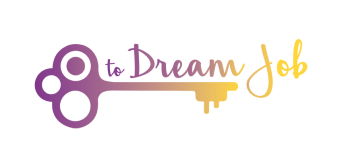
You may lose your job, your money, or your business, but you will never lose your talents. Your talents are your lifelong gift.
Whether you’re an employee, manager or freelancer, these six lessons will teach you all you need to know about your talents, and how you can benefit from them. In today’s blog I will cover the first three lessons, so you can absorb the content more easily and have something to look forward to next week 🙂
Let me start with this question:
Would you aim higher in your career if you knew HOW YOUR TALENTS help you succeed?
I guess the answer is yes.
But what do you focus on more?
Making the most of your talents and strengths, or eliminating your weaknesses and imperfections?
If you spent more time worrying about why things are not working out for you, imagine what could you achieve if you spent at least the same amount of time studying what is great about you, and how to play to your talents?
Imagine what could you achieve, if you used your talents more?
Lesson 1 – What is talent?
You can find different definitions of the word “talent”.
For example, a Google search describes talent as a “natural aptitude or skill”. Your talent(s) can therefore be seen as your natural ability to excel and do something well.
What I love about talent is that you don’t need to gain or acquire it.
Talent is something that is already a part of you. Your lifelong gift. It has always been there, and it is there every single day, but most of the time we are not aware when and how we apply it.
(Isn’t that amazing?)
Your talents show up pretty much every day to you – when you wash dishes or go shopping, when you plan your dates, when you make travel plans … and they also show up at work – when you make choices and decisions, when you act, when you think or when you communicate.
If you want to discover more about talents, take a look at Gallup – an organisation that ignites conversation about strengths, and that unveiled their results based on 30 years of research (so you could say they know about talent!)
What makes Gallup’s approach unique is that it looks at 34 talent themes to help you discover a unique combination of your TOP 5 talents, your dominant talents, and your ‘lesser’ talents.
Lesson 2 – Why should I try to discover my talents?
As a Career Coach who supports people to discover their strengths, I may be a little biased!
But the way I look at it is this:
Your talents are your gift.
Your talents will be always here with you, working for you.
So, why would you not want to discover them?
Speaking from personal experience, I can confidently claim that discovering my talents saved me from burning out while working a full-time job and developing my freelance career at the same time.
There was a time in my life when I questioned whether finance work was all I wanted.
I discovered it wasn’t. But at first, I was scared to turn my other passions into a career. I was afraid of leading a community group, and moving into coaching and mentoring. What if it didn’t work out?
At the time, I worked with my coach to discover my gifts and strengths. I discovered that my talents (as defined by Gallup’s Strengthsfinder) Responsibility, Connectedness, Learner, Self-Assurance, and Activator, gave me a natural capacity to lead teams, initiate projects, and turn ideas into reality.
This was a light-bulb moment. It increased my engagement and confidence. I gained understanding how and when I perform at my best.
It also helped me to develop my freelance career in coaching and training, start writing, and eventually become an Amazon bestselling co-author.
Whether you’re employeed or work freelance, wouldn’t you want to play to your strengths?
Lesson 3 – How do I discover my talents?
There are different ways of discovering your talents, for example from journaling and 360 feedback, to various personality assessments.
Journaling can be fun, but it requires discipline. 360 feedback can also be helpful, but may not capture all your talents (especially ‘hidden’ ones that are not always visible in your behaviours and performance).
I find personality assessments to be most efficient and objective in terms of time and results. Most of them come with interesting insights, although be aware that personality assessments can also put people in a box, or give them a label. This is one downside to them.
I mentioned Gallup’s Strengthsfinder in Lesson 1.
What I love most about this is that it comes with a methodology: how to name, claim and aim your talents to achieve better engagement, performance and fulfilment.
This approach inspired me so much, that I got trained on how to use Gallup Strenghtfinder to help people discover and develop strengths for individuals and managers.
If you would like some help with that feel free to reach out to me. I’ll be happy to help. In fact I am soon opening an affordable 6 week course for employees and managers on this topic.
As promised, I am going to pause here. Next week we will cover:
Lesson 4 – What about weaknesses?
Lesson 5 – Is discovering my talents enough to achieve my career ambitions?
Lesson 6 – Can discovering my talents help me choose the right career?
Don’t miss next week’s article you can like my FB page or sing up here >>>
 You can message me directly through my LinkedIn if you want to discover your talents or discuss your next career options and professional growth.
You can message me directly through my LinkedIn if you want to discover your talents or discuss your next career options and professional growth.
Author: AdriAna Kosovska
Professional and certified coach & founder of ZERO TO DREAM JOB ACADEMY

I work with employees, couples and organisations that care about
Stress reduction | Talents and strengths development | Dream job
Comments